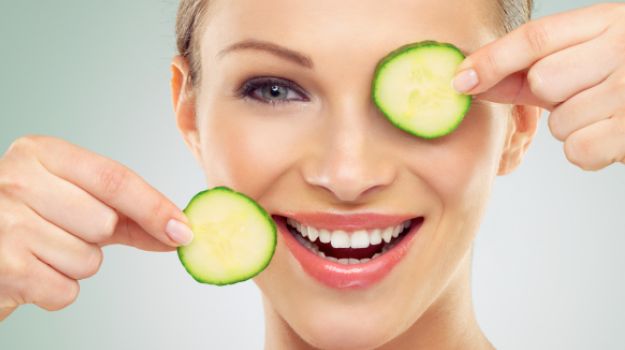Your eyes tell many things about yourself. Healthy and beautiful eyes enhance the face look and overall personality. Sparkling and clear eyes are the sign of contentment and good health.
However, unhealthy lifestyles, lack of proper sleep and the excessive use of mobile phones, laptops, and computers have adversely affected your eyes. Unhealthy eyes create many eye problems such as blurred vision, dry eyes, dark circles etc.
Here are best 5 ways to keep your eyes always healthy and beautiful.
1. Maintain water level
- Drinking sufficient amount of water and eating green leafy vegetables can keep your eyes hydrated. Increase fluid intake ensures proper blood circulation in the eyes. Consuming fresh fruit juice also keeps the eyes hydrated.
- Splash your eyes with normal water a few times a day to keep the water level in the eyes maintained. This also helps to re-energize the tired and dull eyes.
- Do not look on your computer or a smart phone screen for too long, frequently blink your eyes to maintain water level and to prevent them from drying.
2. Eye exercise
- Doing simple eye exercise can enhance the blood circulation to the eyes and gives you relief from eyestrain.
- Move your finger in front of your eyes, vertically and horizontally. Move your eyeballs along with the movement of your finger. Regularly do this exercise for 10 minutes.
- Close your eyes, squeeze them, and then open your eyes swiftly and as wide as possible. Follow this exercise until water starts coming from your eyes. This drains the excessive fluid from your eyes.
3. Rose water
- Rose water is the best natural cleanser for the eyes. It reduces the pressure around eyes and gives you soothing effect.
- The antibacterial and antiseptic properties of rose water, reduce the stress, fatigue, and cool down your eyes. Rose water also reduces the puffiness beneath the eyes.
- Dip cotton in rose water, close your eyes and clean the area around your eyes with it. You can also soak cotton ball in rose water, place it on your closed eyes and leave for 10 minutes.
4. Eye massage
- Tenderly massage your eyes to improve the blood circulation and get relief from eyestrain.
- Rub the palm of your hands together aggressively to make them warm, now close your eyes, place warm palm on your close eyes, and feel the warm and soothing effect.
- Lightly dip your fingers in coconut oil, massage the area around your eyes using your finger. Massage inner and outer eye circles, eyebrows, and area under your eyes.
5. Cucumber
- The presence of caffeic and ascorbic acid in the cucumber helps in storing the water in your eyes for a long time.
- Cucumber reduces the puffiness, swelling and dark circles beneath your eyes and provides a glow to your eyes and skin.
- Lie down, place the two thick slices of cucumber on both the eyes and leave it on your eyes for at least 20 minutes to get the best results.


